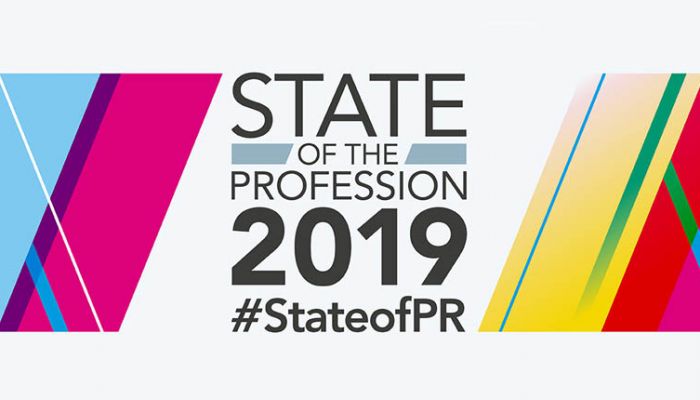PR is not diverse enough – results from CIPR’s State of the Profession 2019
The results from this year’s State of the Profession survey from the CIPR reveal that PR firms are getting bigger but alongside the greater headcounts, they also contain gender imbalance, mental health issues triggered by high workloads and unfair advantages for those who come from a paid-for education background.
The CIPR’s survey of 1,503 members showed that PR departments are more likely to have grown in size, with half of the agencies getting bigger. It’s a positive sign for the importance and value of PR, but there are greater concerns among the workforce.
The PR workforce is less diverse this year, with more than one in ten (92%) classifying themselves as white – up from the 88% in 2018. When it comes to gender equality, two-thirds (67%) of the industry identify as female, yet almost half (44%) of the most senior roles are occupied by men. To add to issues of unfair advantage in the world of PR, a quarter of this survey’s respondents went to fee-paying schools – much higher than the national average (7%).
As for how the industry’s unique pressures impact its workers, this survey found a level of disconnect between what firms expect of their employees versus the skills people believe are actually important for their roles. Junior practitioners, for example, don’t identify ‘technical and digital’, ‘research and evaluation’ or ‘project and account management’ skills as strengths, whereas recruiters do.
A more serious disconnect, however, is the continuing difference between the demands of the job and the workloads people can manage while remaining healthy.
Over half (59%) of respondents classed a heavy or unmanageable workload as a factor for workplace stress, with 46% highlighting unrealistic deadlines and expectations, and 32% find the unsociable hours a problem. Nearly a quarter (23%) said they had taken absence from work due to stress, anxiety or depression, and 14% rated the contribution of work on their diagnosed condition as significant. How the industry supports workers with stress-related mental health issues could also be cause for concern – 23% said managers did ‘nothing’ when informed of the problem.
Those working all-hours won’t be surprised by all these numbers, maybe they won’t even have time to read them, but there are also encouraging statistics to be found in the CIPR report. Of the staff with mental health concerns related to their career – 36% said they were offered counselling after talking to their managers, 28% time off and 19% re-allocation of workload.
CIPR President Emma Leech, said: ‘This report identifies clear challenges and opportunities for the PR industry. Diversity is an issue we must tackle head on. Talent doesn’t have a postcode and it isn’t determined by skin colour. Our industry has to work harder to be inclusive. Similarly, mental health is a growing area of concern and we must be proactive in changing working practices and shifting the ‘always on’ culture that contributes to the problem.’
Avril Lee, chair of the CIPR Diversity and Inclusion Forum, said: ‘The PR industry agrees that diversity is important for attracting the best talent to bring fresh thinking, creativity and insights into new audiences, but our actions speak louder than our words. And our actions are building a profession of white, ex-public-school professionals; we are less diverse than in previous years.
‘Who can make our industry a fairer place where there is opportunity for all? You! Every manager, every employee, every agency leader – we all need to challenge outdated and biased recruitment and retention policies. We are all responsible for shaping the future of our industry by establishing workplace cultures in which all talent is judged fairly and given an equal opportunity for progression. Without those inside changing the status quo, those outside will remain locked out and our profession will be the poorer for it.’
As the CIPR report states, the numbers may ‘paint a picture of a profession which lacks self-awareness and consciously or unconsciously disadvantages people based on who they are rather than what they can do,’ but this is an industry in the process of self-correcting. Surveys like this can only help with gaining greater insight for the support of those already in PR, and with the improvement of hiring practices for those who could do great work as part of the industry in the future.



Leave a Comment